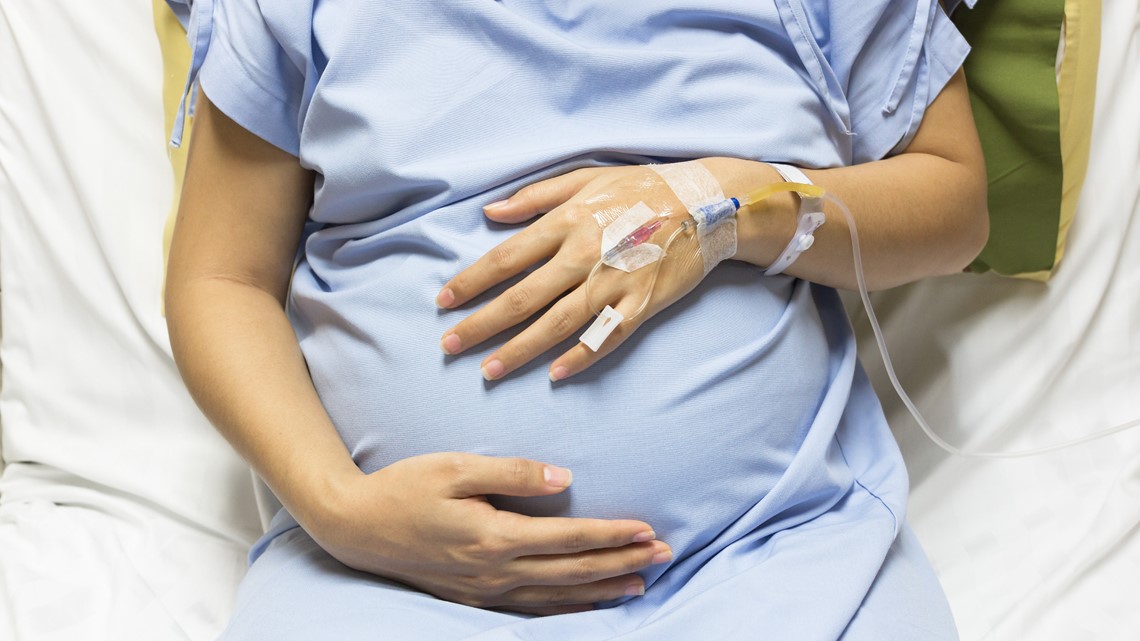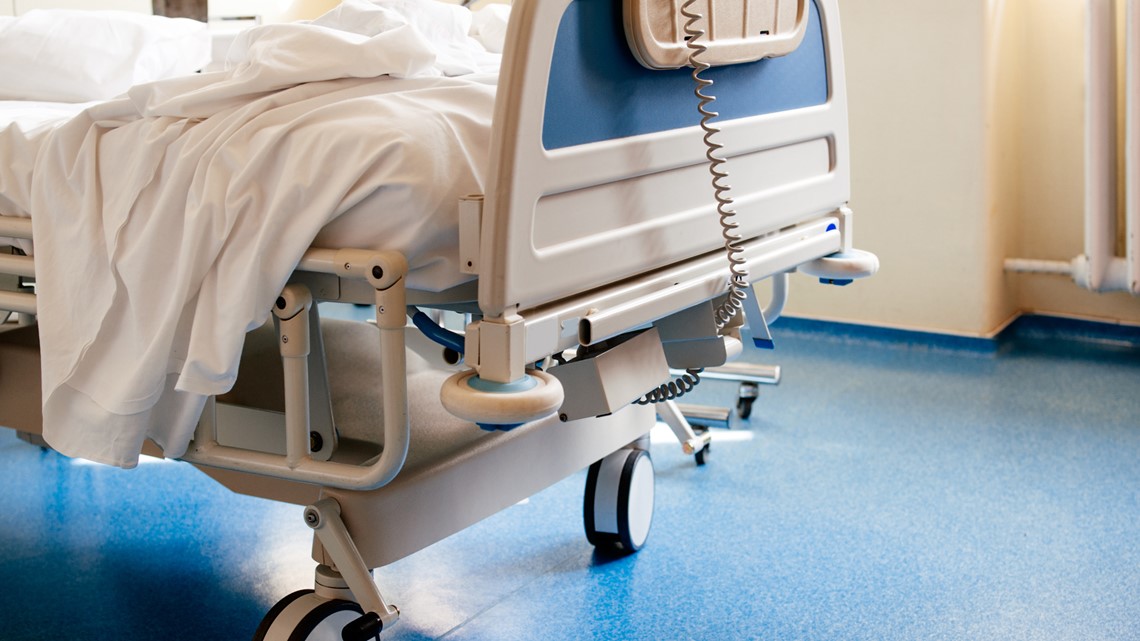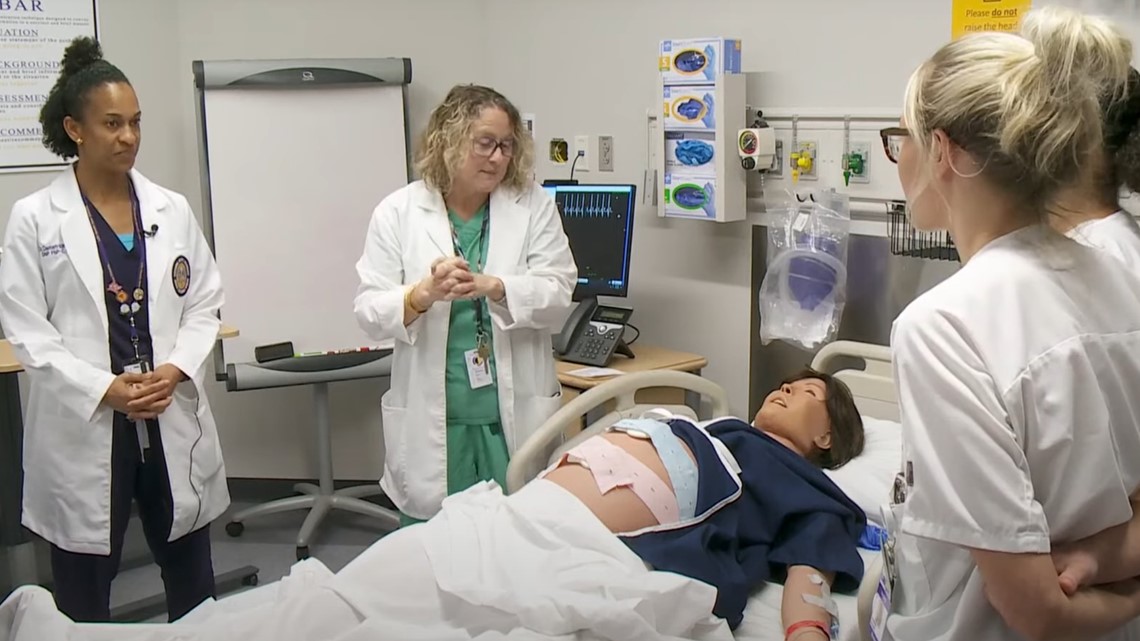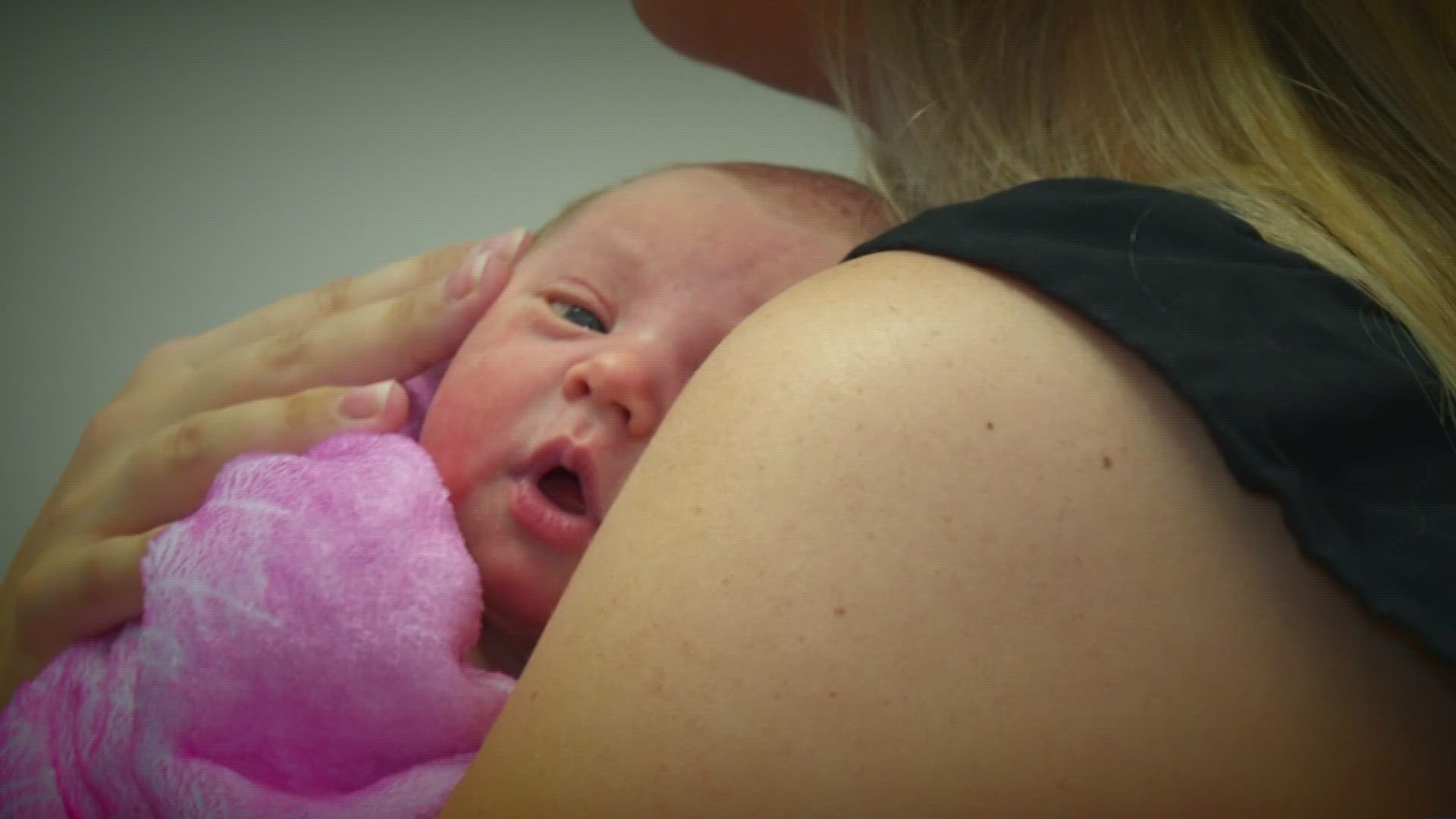NEW ORLEANS — Often women use their obstetrician-gynecologists for their primary care needs, like managing diabetes, high blood pressure, and heart disease.
And these doctors also make sure expectant mothers are healthy throughout pregnancy, so they can bring healthy babies into the world.
But now in Louisiana, that doctor-patient relationship is harder to find.
Baby Farrah Tageant just arrived two days ago. When Katelyn went into labor, she and dad Clay, had a 20-minute trip from their home in Franklinton to the OB floor at Our Lady of the Angels Health in Bogalusa. Doctors there also do her regular screenings and exams.
“If it wasn't for The Angels, I would have to travel at least 45 minutes to an hour to go and do those kind of things,” said new mother Katelyn Tageant.
And with two girls now, and both parents working full time, the hospital opening 10 years ago, means they can schedule time for health.
“When I was in high school, I used to travel at least 45 minutes to an hour to go and get a yearly checkup. And sometimes I would put that off as well,” added Tageant.
“Safe birth outcomes are the foundation of our community, right, our families, our children. Maternal child health is the foundation of our family,” said Dr. Robert Maupin, Jr., an obstetrician-gynecologist who is head of Maternal-Fetal Medicine at LSU Health Sciences Center in New Orleans.


Dr. Maupin calls what's happening in Louisiana, alarming.
“In terms of maternity deserts, unfortunately we are ahead of the national average.” he added.
One-third of the parishes have no – or little – maternity care, and 17 parishes are without an OB-GYN. Another 26 percent have limited access. Many are in the more rural areas, but metro area women are limited, too.
“When you look at Chalmette, or St. Bernard Parish and in Orleans Parish, in New Orleans East ever since Hurricane Katrina when they lost Methodist Hospital, at present we don't have an obstetric unit that's in the east,” explained Dr. Maupin.
So, why is this happening? There are many reasons. More doctors are going to big medical centers, where they can join a group practice.
“Most OBs are mothers, and we want to see our kids, right? We don't want to be on call 24-7-365, up all night, the old kind of country doctor. And so, it's hard to recruit to rural areas. We spend four years learning to be surgeons. It's a challenging training, one of the hardest ones out there,” said Dr. Rebekah Gee, obstetrician-gynecologist and the CEO of Nest Health.
Big centers can help with the administrative burdens, dealing with insurance denials, and electronic medical records.


“We have to spend countless hours trying to do that, and the patient wants the medication we feel is best for them, but we have another party saying, ‘You really shouldn't have this.’ It takes sometimes three hours to discharge a patient. So, in the meantime, you have other patients waiting,” said Dr. Leonard Weather, Jr., an obstetrician-gynecologist, who specializes in treating endometriosis and is on the Louisiana State Board of Medical Examiners.
He is the President-elect of the Academy of Physicians in Clinical Research.
Then there's the simple math for earning a living. Insurance reimbursement for this specialty is low, but medical malpractice insurance is one of the highest, while dealing with numerous lawsuits.
“Which happens on a regular basis. It increases your insurance even if you're found innocent, and it causes enormous stress, and burnout, and difficulty being able to function,” explained Dr. Weather.
Former Louisiana Secretary of Health, Dr. Rebekha Gee says for doctors who want to offer abortions to women, Louisiana’s stricter laws are a disincentive to move here.
“Especially if we want to recruit people here that these laws are somewhat more reasonable, and do take into account medical decision making, especially around the health of the mom,” Dr. Gee said.
Dr. Weather says doctors should not fear that current laws will cause them to be prosecuted for medically necessary procedures.
“Once they look at the Louisiana legislation, then they could clearly see, and understand it, and they can provide the services to our patients. They can come here without the fear or threats of losing your license,” said Dr. Weather.
What all these specialists do fear, is that women and babies health will suffer if there is not better access to annual pap smears, mammograms, family planning, and deliveries.
“We expect these things to go up, because it's clear, prevention and wellness is enormously important,” said Dr. Weather.
“The consequences are that we have an excess number of preterm births, compared to national averages,” said Dr. Maupin.
ER doctor, internal medicine physician, and attorney, Dr. Joe Blackston has seen the consequences of the OB-GYN shortage where he practices in Mississippi.
When asked if he sees more women coming into the ER with complications because they haven't had prenatal care, or they haven't gone for well woman visits, Dr. Blackston replied, “Yeah, unfortunately that's not uncommon at all. Sometimes just showing up in the emergency room not knowing that they are pregnant, and birth is sometimes imminent.”
LSU Health is working on solutions. There is a new doctorate level training program for nurse midwifes, complete with a state-of-the-art animation lab where mannequins talk and give birth to a “baby” and “placenta.”
There are also medical school tuition waivers for doctors who agree to work in shortage areas for five years.


Telehealth will play a role, and so will remote home monitoring of pregnant women's vitals. In Dr. Gee's practice, called Nest Health, she is delivering health care to families in their homes.
“We have a high incidence of untreated maternal depression, and in fact here in New Orleans, some of the data that we've seen at Nest, is that only 15 percent of women of color are even going to their postpartum visits. It's a real problem,” said Dr. Gee.
Dr. Maupin is helping the shortage in a personal way.
“I'm very proud that my daughter, who will graduate this coming spring, is going into OB-GYN, and so this is the future. This is the future,” said Dr. Maupin, whose daughter is in medical school at LSU.
“We're always going to need an OB-GYN. It's a fabulous profession. It's the best one in health care, and so I think we have to think about making sure we're doing everything we can to support those doctors,” said Dr. Gee.
Across the country, there has been a sharp rise in the number of babies born with a sexually transmitted disease. Nearly 40 percent are in women who got no prenatal care.
A shift to more virtual prenatal care, and reduced clinic hours, also means that women aren't being tested for STD early in the pregnancy.
► Get breaking news from your neighborhood delivered directly to you by downloading the new FREE WWL-TV News app now in the IOS App Store or Google Play.

